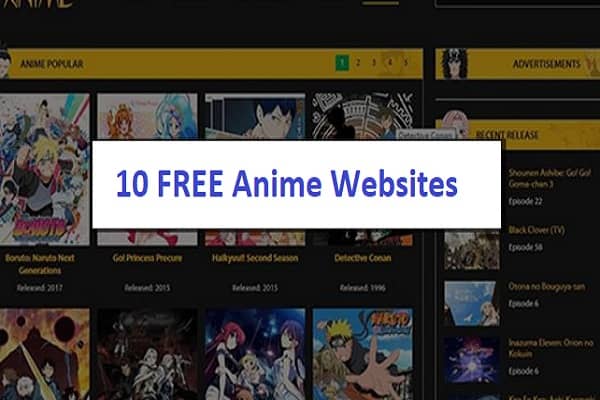Many industries have been substantially altered as a result of today’s massive mobile technology developments. Mobile applications are omnipresent, from those we use daily for entertainment purposes to those that help health institutions communicate with their patients.
Contents
The market of healthcare apps
The intricacy of reaching new markets, patients and opportunities that this kind of software presentsfor businesses worldwide is a key driver that has spurred the development of healthcare applications (and it still does).
Healthcare mobile applications link physicians with individuals who are in need of assistance, reducing the workload for healthcare providers.
Why is It Beneficial to Use Healthcare Apps?
There are multiple advantages to developing healthcare applications,both benefiting the healthcare providers and patients. This aspect acts as a relevant differentiator when it comes to characterizing your product against your competitors .
Let us not, however, concentrate just on one feature. Here is a deep dive of the top seven benefits.
-
Patient care without worrying about distance
Healthcare apps can assist those patients living in rural and distant locations, allowing them to receive high-quality treatments, receiving expert recommendations, and scheduling appointments with physicians without having the need to travel to a hospital only to ask a receptionist to list their name in the patient list.
The healthcare application informs clinicians about the patient’s symptoms and deteriorating health status. These apps are created to check for illness signs and provide different types of reports. Following them, physicianscan make better informed and appropriate decisions, including prescribing medications that may be accessible via the app.
Also read: What Are the Greatest Jobs in the Healthcare Industry
2. The Internet of Things (IoT) is becoming more prevalent in the healthcare industry
More and more industries are being aggressively conquered by the Internet of Things and the medical field is certainly no exception. The IoT healthcare industry is developing at a breakneck speed, with some projections predicting that the market will reach $136.8 billion by 2022.
The Internet of Things allows healthcare workers to collect data from connected healthcare equipment (such as health wearables and fitness trackers) and send it to their designated healthcare service provider.
This technology makes it easier for healthcare providers to keep track of their patient’s most relevant health indicators and alerts when they go beyond a certain critical level. This is one of the many reasons why IoT works in tandem with medical and healthcare mobile apps.While IoT greatly improves patient care, all this new technology is also an important source of revenue for stakeholders.
3. Increased diagnostic precision
With its sophisticated health diagnostic approach, healthcare applications reduce mistakes that might be deadly for patients. The danger of mistakenly diagnosing is reduced since clinicians have access to a wide array of data and a healthcare data network with detailed patient medical history.
Sensors are used in healthcare apps to measure and monitor numerous health factors. Furthermore, machine learning is a technology that can provide major benefits to healthcare app development projects. Machine learning for medical diagnosis can bring extra support to doctors, reducing the risk of mistakes.
4. Secure and reliable payment options
Waiting in a line to pay your medical bill is no longer an option. Bill payment becomes a breeze when secure payment channels are incorporated into healthcare mobile apps.
To pay invoices in a matter of seconds, select your chosen payment method. These applications will also give you a notification as a reminder if you forget to make a payment.
5. Cost-Effective
While healthcare mobile applications seem more convenient to users, they also relieve an important financial strain by lowering medical expenses.
A healthcare app is a smart way to save money for patients because numerous chores may be completed through the app.
Patients may also view the prices in real time while communicating with the hospital via an app. As a result, when they receive their final bill, they will not be surprised because they’ve alreadyhad the opportunity to budget their needs and plan their expenses ahead of time.
6. A strong healthcare brand
This benefit is especially important for healthcare facilities, since creating a great app can strengthen their brand image. Despite the fact that mobile applications are quite popular these days, there is still a limited number of healthcare organizations that have released apps.
The latter implies that by providing an effective mobile app, a healthcare facility has a great chance of improving its reputation amongst their target audience,acquiring new patients and boosting the trust and comfort of their existing ones.
7. Monitor and track your health with ease
One of the most significant advantages of utilizing healthcare mobile applications is the ability to track and check your health on a daily basis.
Patients may monitor blood pressure, sugar levels, weight, cholesterol levels, heart rate, and other biometrics using smart healthcare apps in wearables. This allows patients totake action as soon as their parameters rise or fall.
Conclusion
Using healthcare mobile applications clearly relieves pressure on the healthcare staff and facilities during lockdowns while providing users and physicians a full scan that allows for a greater understanding of a patient’s health.
If you do decide on healthcare app development keep in mind that the first thing you should consider when developing a concept is the list of benefits that this solution may provide to patients and physicians. Though the technical aspect is critical, the value your app will provide users is the most significant factor in its success.




